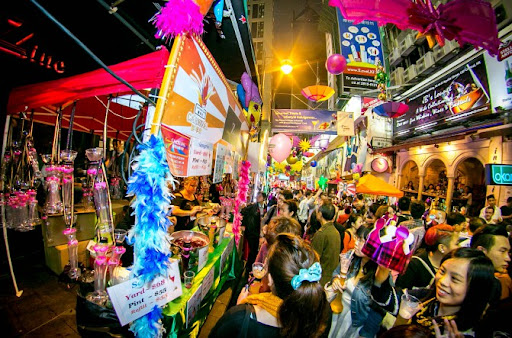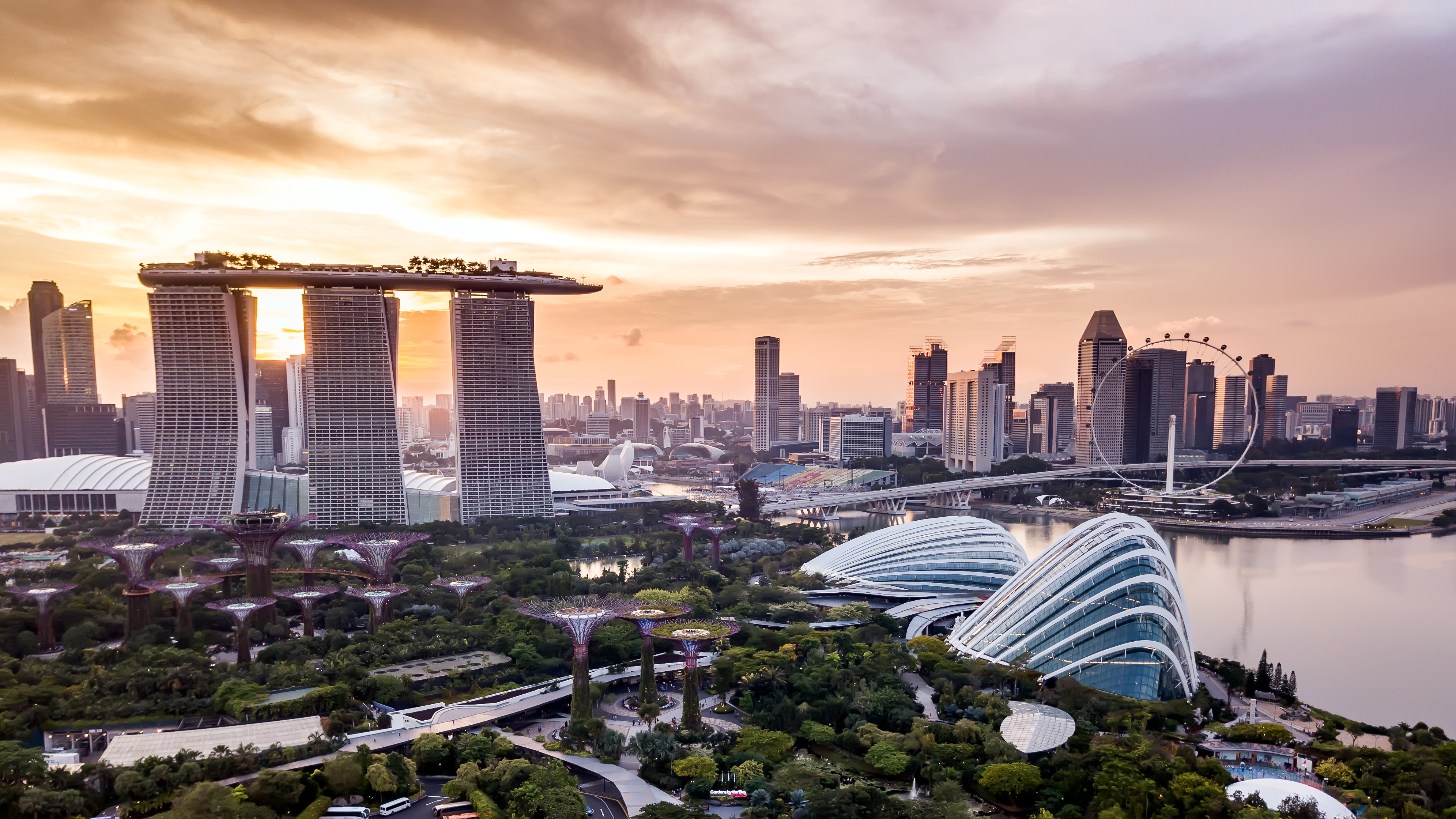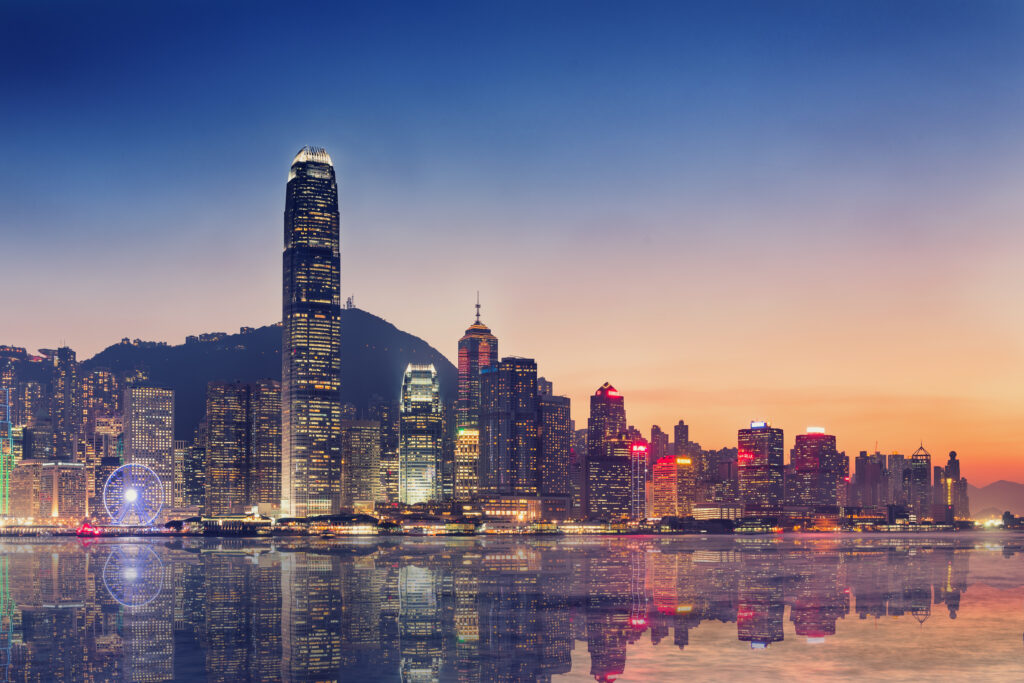Where’s the best place to put your regional headquarters in Asia – Hong Kong or Singapore? In the first instalment of Conversation Asia, Donald Macintyre & Dick Wright pick sides.
Hong Kong or Singapore? Both are thriving business hubs and great places to live. But when it comes to finding the right place to set up your command post in Asia, does one of them have the edge? Tantalus consultants Donald Macintyre and Dick Wright have lived and worked in the region for decades: they weigh in on a question that is once again top of mind for many global enterprises.
Dick Wright: Well Donald, I know Singapore has a lot going for it. It’s a nice city. But Hong Kong is so – alive! The place has an incredible vibe. Expatriates moving here get swept up in its cosmopolitan feel and the organized chaos all around them. It’s got the pace of a major global city.
Donald Macintyre: I’ll admit Singapore would love to have Hong Kong’s buzz. But the attraction of Singapore for some – particularly expat families – is that it’s an oasis of order and tidiness, the schools are good, the streets are safe. Basically, the trains run on time, and they’re really clean trains. Plus Singapore’s got parks and greenery and sunny weather, even a few beaches.
Dick: You’re really not going to try to score points on greenery, are you? Outsiders also don’t know this but Hong Kong’s is full of parks, beaches and hiking trails. In fact, of the total 1,108 square kilometers of land in Hong Kong, about three-quarters is countryside.
I’m out and about in the countryside every weekend and in 26 years in the city I’m still finding new trails and villages. It’s an incredibly beautiful place to live and raise a family.
You’re really not going to try to score points on greenery, are you? Outsiders also don’t know this but Hong Kong’s is full of parks, beaches and hiking trails.
Dick Wright
But there is more. Hong Kong is the gateway to China. You know, before the handover Singapore was still trying to argue that they were a better China bet. But now Hong Kong is part of China.
If you are a financial business looking to expand into China, Hong Kong is the perfect place to do it. The central government is rolling out a great initiative called ‘Wealth Management Connect’ that lets financial instrument investment freely happen between Hong Kong, Macau and 11 major cities in Guandong province. It’s estimated that bank fees on transactions could yield $500m per year.
I don’t think Singapore can match that!


Donald: OK Dick, I’ll concede the greenery points. But if you want to bring it back to business, Singapore is hard to beat. Low corporate taxes, no capital gains tax, simple regulations, strong IP protection – the list goes on. You’re got a highly skilled workforce, incredible infrastructure – starting with Changi Airport. And let’s not forget political stability and low corruption.
Hong Kong’s big plus was close links to China and a British-style legal system. Now big multinationals are worried they could get face legal threats, for example, if they comply with US sanctions aimed at Beijing. So they have to start factoring in geopolitical risk.
Hong Kong’s big plus was close links to China and a British-style legal system. Now big multinationals are worried they could get face legal threats, for example, if they comply with US sanctions aimed at Beijing. So they have to start factoring in geopolitical risk.
Donald Macintyre
Dick: Yes, that’s a concern but we don’t know how it’s going to land yet. Both sides are treading lightly for now but local government is really holding out several olive branches for business. Invest Hong Kong, the city’s trade body, is trying to attract home office businesses to the city. Our close connection with China, respect for the rule of law and local tax incentives are attractive to business.
And you know, two of the largest tech start-up centers are in Hong Kong. Cyberport has over 1,650 start-ups and tech companies, turning the city into a fintech hub and attracting great local and international talent. And Hong Kong Science & Technology Park – spread across 22 hectares – has launched more than 1,000 tech ventures and it’s creating a space for real innovation. Some great new companies are taking root.
Donald: Singapore is doing pretty well in this space, too, with more than 3,800 tech start-ups. And when it comes to tech start-ups, the great thing is Hong Kong and Singapore are competing to be the most tech-friendly investment destination. That’s good for would-be entrepreneurs in both cities.
But, as I said, it’s geopolitical tension between Washington and Beijing that could spoil the party for Hong Kong and businesses don’t like uncertainty. Singapore may be more bland than buzzy but its political stability will start to look more and more attractive.
Dick: Well, I’ll concede it’s a close competition, but I don’t foresee any spoiled parties on the horizon from my busy bar stool in Lan Kwai Fong.

Donald: Dick, what can I say? The view from my favourite neighbourhood hawker stall looks pretty good too.
Is Hong Kong or Singapore better for regional Asian headquarters? Fast Facts

Singapore:
Strategically located north of the Singapore Strait, one of the world’s busiest commercial routes, this small island city-state has a GDP of 340 billion U.S. dollars and a population of just under 6 million. Singapore is a stable and prosperous global financial hub.

Hong Kong:
A special administrative region of China, this city is a bustling trade and financial hub with a GDP of 346 billion U.S. dollars and a population of about 7.5 million. Chinese and Western influences keep the culture and economy vibrant.

Donald Macintyre | Senior Consultant | Vancouver, Canada
Donald Macintyre is a communications professional and former Time magazine correspondent with more than 20 years of experience working in Europe and Asia. He has led communication teams at major banks in Japan and Singapore, advising senior leaders on organizational and change communication and developing innovative content to drive staff engagement.
As head of communications for Standard Chartered’s global retail banking business, he led a team that supported business process and culture change for 30,000+ employees across 30 markets in Asia, Africa and the Middle East. Obsessive about good writing, he also created a style guide for the bank and developed writing training courses for mid-level managers and front-line staff. In an earlier career in journalism, Donald worked for Bloomberg and Time magazine in Tokyo and was later based in Seoul for six years as Time’s first permanent bureau chief for North and South Korea. He speaks French, Italian and Japanese and he’s working on his Korean.

Dick Wright | Senior Consultant | Hong Kong, SAR P.R.C.
Dick has been working out of Hong Kong and across the Asia Pacific for over 24 years. During that time, he has worked in agency with Hill & Knowlton and in-house with Lucent Technologies, Alcatel and BT Global Services. During these years he developed a two-pronged expertise of crisis issues management and media skills training, alongside a Telecommunications technology focus working as a part of Asia Pacific and global teams.
He has extensive experience in ‘real’ crisis comms situations. These include extensive redundancy communications, hands-on crisis situations including FCPA and labour issue work in China and employee issues in Guatemala with US owners and Chinese contractors. He has also built four day training programs with hundreds of participants, across multiple cities. He was a registered Lobbyist in Ottawa for the Government Business Consulting Group where he focused on big pharma patent protection, open skies between Canada/US and procurement issues in expanding private business opportunities in the government procurement process. Dick has an MBA from Kellogg/HKUST, a degree in Asian Management and a Bachelor of Arts in Political Science, English & Economics. He speaks English, some French and basic Cantonese.
Get Tantalus Alerts
Receive high-value actionable insights for management and communications professionals. We only send what matters most.


